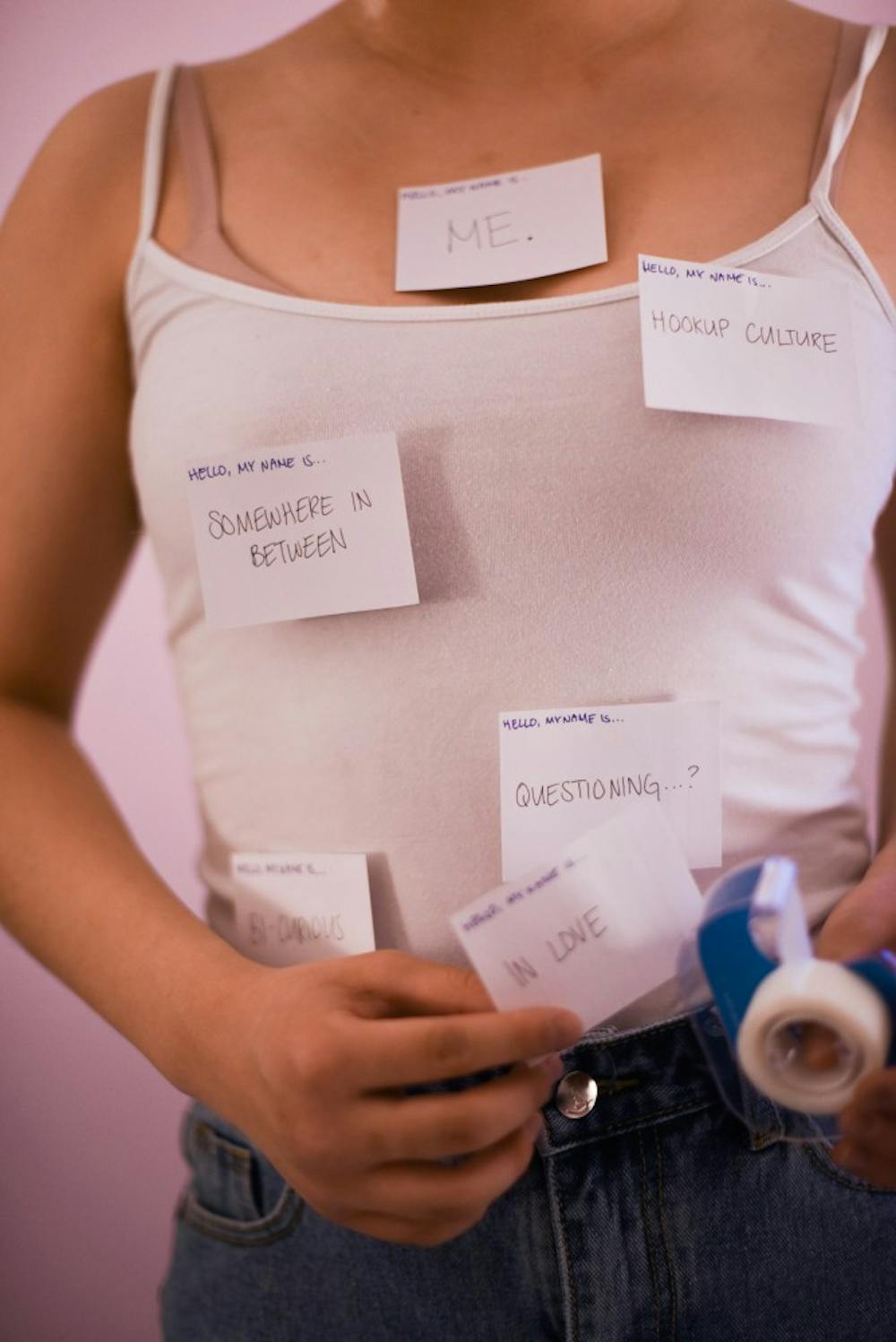I am not your Korean fetish.” That was the Tinder bio I wrote last summer, which came with some decent pictures of myself and a surprise painting of Judith slaying Holofernes. A not-so-subtle finger to the patriarchy.
Needless to say, I didn’t really want to be there. Since then I have not opened my Tinder in several months, and I’m pretty sure that my account has been disabled. Hookup culture doesn’t appeal to me, and the only thing I had in common with most of these men was that I like The Office.
There’s more to my dislike of dating apps, though, than my lack of interest in hookups and my unreasonable tendency to freak out every time I accidentally swiped right. For the week or two that I fiddled with Tinder, my race was a greater source of anxiety than ever.
Wherever we go, minorities deal with sexual racism. But dating apps are particularly toxic environments, where people seem to be more comfortable parading their embarrassing “preferences.” These go beyond yellow fever: They include the aversion to effeminate Asian men and their small penises, the idolization of white people, the fascination with the supposed sexual aggression of black people (“jungle fever”) and the hypersexual “spicy Latina.” The general fixation on the so-called exotic. It’s all too common for users to specify their “preferences” in their bios (descriptors like “no Asians” or “no blacks” may sound familiar) and to harass minorities with their warped fantasies.
Part of this has to do with a culture of superficiality on dating apps. There’s only so much that we can share about ourselves. While some of us may come up with compelling, detailed bios, it’s ultimately our physical appearances that determine whether people swipe left or right. Race, whether we like it or not, factors into this.
Studies show that people do tend to choose between potential partners based on their ethnicity and race, though they might not always do so consciously.
A well-known survey by online dating service OkCupid shows that when it comes to male-female couples, people were generally more interested in dating people of their own race (except for white men, who favored Asian women over white women by a three percent margin). Otherwise all non-white groups — except black men and women — were most interested in white partners.
The data is hardly surprising. Psychologists agree that we are generally attracted to what is familiar, and for many of us, that’s people of our own race. That’s especially understandable when it comes to minorities, as we may be able to bond more easily over shared experiences and traumas.
As for white people, they pervade the media, populating our favorite books, TV shows, films and commercials. Even if we do not live among them, they are more familiar and have determined beauty norms. Their privilege, in short, makes users think they’re more desirable.
In failing to look beyond such options, however, we may risk adhering to our racial biases and dehumanizing other minorities in the process. Dating apps only enable such behavior patterns. For example, apps like Grindr have gained notoriety for allowing users to filter out entire racial groups (Grindr recently sought to address sexual racism by introducing an initiative called “Kindr”). Even apps without such filters quietly reinforce your racial biases.
A 2018 study from Cornell University shows that dating apps have algorithms that analyze the race of your previous matches and recommend new potential partners who are of the same racial group. Such features would certainly do little to expand your own horizons, and it would certainly mean that minorities will not get a fair chance at love.
If we are to combat sexual racism, dating apps would also be a good place to start. According to the study, researchers estimate that one-third of marriages start online and that 60 percent of same-sex couples meet online. Whether people are using dating apps for casual hookups or in the hopes of finding love, being excluded and dehumanized on the basis of race or ethnicity shouldn’t be a norm.
Apps can be more inclusive by adjusting algorithms and getting rid of racial filters. They can also be more proactive in raising awareness about racial stereotyping in dating for its users, as Grindr was last year.
But that won’t be enough. Fighting sexual racism also means detecting and reexamining our own biases. We can’t help having them, but we can make all the difference by confronting and dismantling them.
But change is slow, and I can’t foresee a time in the near future where I’ll feel comfortable getting back on Tinder. So why bother? I’m already plenty uncomfortable. The last thing I need is yet another reminder that I’m just a tight, exotic Chinese sex doll.





